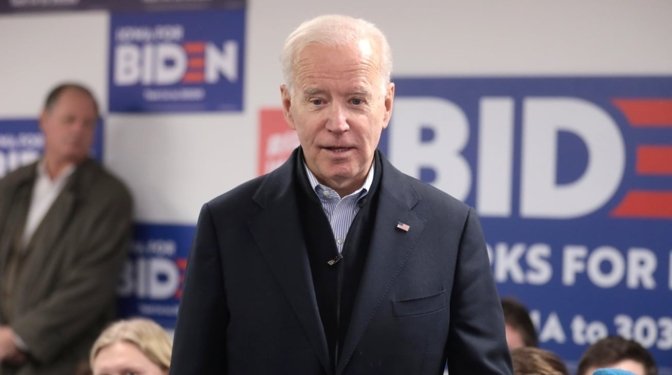Biden Big Tech anti-competition order imminent, will call for return of net neutrality
A new Executive Order will contain multiple measures aimed at protecting the ability of small businesses to compete against Big Tech firms, including asking the FCC to restore net neutrality.

Credit: White House
Following his asking the FTC to step up right-to-repair regulations, President Biden is now also to require the commission and other bodies to increase their anti-competition role.
According to CNBC, the President is introducing 72 new anti-competition measures in an Executive Order due to be signed Friday, July 9.
"The impulse for this Executive Order is really around where can we encourage greater competition across the board," Brian Deese, White House chief economic advisor, told CNBC. "[Big Tech platforms have] created significant problems... [including] problems for users in terms of privacy and security, [and] for small businesses in terms of entering markets."
Among the 72 measures, the FTC is to be asked to:
"[This] is not just about monopolies," said Deese, "but it's about consolidation more generally and the lack of competition when you have a limited set of market players."
The new Executive Order directing the FTC comes shortly after the Federal Trade Commission confirmed Lina Khan as its new chair.
Keep up with everything Apple in the weekly AppleInsider Podcast -- and get a fast news update from AppleInsider Daily. Just say, "Hey, Siri," to your HomePod mini and ask for these podcasts, and our latest HomeKit Insider episode too.If you want an ad-free main AppleInsider Podcast experience, you can support the AppleInsider podcast by subscribing for $5 per month through Apple's Podcasts app, or via Patreon if you prefer any other podcast player.

Credit: White House
Following his asking the FTC to step up right-to-repair regulations, President Biden is now also to require the commission and other bodies to increase their anti-competition role.
According to CNBC, the President is introducing 72 new anti-competition measures in an Executive Order due to be signed Friday, July 9.
"The impulse for this Executive Order is really around where can we encourage greater competition across the board," Brian Deese, White House chief economic advisor, told CNBC. "[Big Tech platforms have] created significant problems... [including] problems for users in terms of privacy and security, [and] for small businesses in terms of entering markets."
Among the 72 measures, the FTC is to be asked to:
- "Challenge prior bad mergers"
- Ban occupational licensing restrictions
- Ban or limit non-compete agreements
- Draft new rules on data collection and surveillance practices
- Restore net neutrality
- Block exclusivity deals between landlords and broadband providers
"[This] is not just about monopolies," said Deese, "but it's about consolidation more generally and the lack of competition when you have a limited set of market players."
The new Executive Order directing the FTC comes shortly after the Federal Trade Commission confirmed Lina Khan as its new chair.
Keep up with everything Apple in the weekly AppleInsider Podcast -- and get a fast news update from AppleInsider Daily. Just say, "Hey, Siri," to your HomePod mini and ask for these podcasts, and our latest HomeKit Insider episode too.If you want an ad-free main AppleInsider Podcast experience, you can support the AppleInsider podcast by subscribing for $5 per month through Apple's Podcasts app, or via Patreon if you prefer any other podcast player.

Comments
If right to repair rules are put in Apple will adapt.
If alternative stores are mandated, Apple will adapt.
Apple has been doing this for a long time. They will adapt. They will keep making cool devices. They will do what they do best.
Because he knows that would be a dumb thing to do.
"Were these guys "Robber Barons" or "Captains of Industry"? "
Yeh, i can't wait for my iPhone to be as secure as my Windows PC. /s
Cities shouldn’t grant monopolies, either. No one should - that’s the whole point.